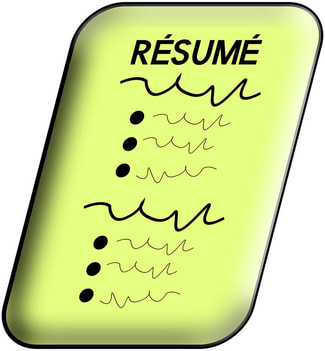 I review and rewrite resumes every day. It’s fun and similar to taking a diamond in the rough and polishing it to reveal the inner brilliance and it is the same with a person’s career. Over the years, I have noticed that too often resumes fall short of adequately presenting a person’s brilliance. People seem to write their resume as either a list of competencies or accomplishments but rarely as achievements. What’s the difference, especially between the last two? A lot. It is enough to make the difference in gaining an interview or a recruiter's attention. At worst, a professional is inadequately branded and doesn't show their best potential. You tell me which category does your resume fall into? Competencies Resumes Technical people tend to list bullets of competencies either hardware, software, tools, techniques, or applications. This is true of all types of engineers, accountants, doctors and other health care practitioners, film/video/audio engineers and producers, as well as programmers, oil and gas and manufacturing types. It is so easy to write lists of competencies for these specialties. It is natural to itemize the tools, methodologies, procedures, and techniques in these fields. Anytime you have a list of things you have mastered and know how to apply and use, then a competency-driven resume is the result. They aren’t bad but simply incomplete as they tend to be strings of words without being attached to a task or action with a beginning and end e.g. an accomplishment. You don't stand out with a list that can be checked off. Accomplishments Resumes A short reach beyond a list of competencies is a list of accomplishments. Most seasoned professionals can do resumes like this with ease. They tend to be historically written in reverse chronology. Accomplishment bullets are set in time with a beginning and end of a task, job or project. These bullets are complete sentences that start with action verbs such as designed, delivered, sold, produced, wrote, managed, etc. Of course there are thousands of action verbs as there are tasks to complete, jobs to do, and projects to finish. Some professionals are so adept at delineating and capturing every action and task throughout the course of their job that the bullets trail down the page overwhelmingly. Accomplishments can be simple or very demanding being completed in a short time-span or over a long period. For example, conducting and completing clinical trials for a new drug can take months to accomplish. This type of resume may be sufficient for an entry level position or an individual contributor. It is not sufficient if you seek more responsible roles that entail leadership, decision-making, and responsibility as it lacks achievement. Achievements Challenging and prestigious are often words used to describe achievements. Achievement implies reaching goals. The difference between accomplishment and achievement is subtle but distinct. For example, completing a series of clinical drug trials is an accomplishment of a project or task. Completing those trials in a way that expedited the drug’s successful approval by the FDA for commercial distribution that will grow the company’s profits is an achievement. An achievement statement on a resume is quantified in some way by demonstrating data, naming names, and using words such as increasing, decreasing, growing, expanding, approving, containing, innovating, improving, succeeding, etc. Turning accomplishments into achievements ties the efforts of tasks and projects into overarching results that impact the organization. Writing a resume that ties your contributions to the greater good of the company is integral to building a professional brand and growing your career. You incrementally grow your reputation one achievement at a time.
11 Comments
|
Categories
All
Archives
May 2019
Licensed by CC-by-SA
|